Are you looking into living in a camper van or an RV for an extended period of time but want to know if it’s legal? Ultimately the answer is Yes, but there might be a few rules and laws you need to follow to truly make it legal. While you usually can’t live out of a campervan in one spot indefinitely, you can move around to different “legal” spots. And for many people the freedom to move around is one of the big perks of the lifestyle. So in this guide, we will help you understand where you can legally live in a camper van or RV.
There is definitely a “grey area” in many circumstances when it comes to legally sleeping in your vehicle. For example, many municipalities have decided that they can’t just arrest people for homelessness. So while the laws might say that sleeping in a vehicle might is illegal, the enforcement of those laws is in reality more forgiving than that.
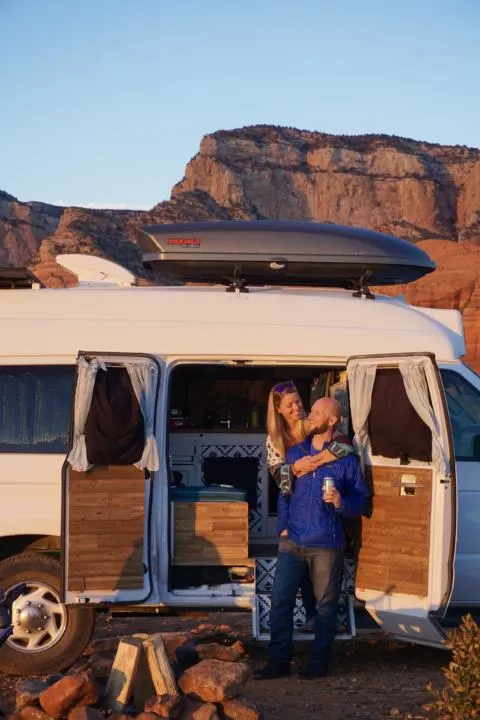
Or the other primary “grey area” is parking at some location that doesn’t explicitly prohibit or allow overnight camping. If nobody sees or has a problem with it, then it will probably go unnoticed. In this guide, I will cover the options for both legally living in a camper van or RV at a permanent location and also moving from place to place. So hopefully this will help you find where it is legal to sleep in your camper van or RV.
I should state that I am not a lawyer, nor can I provide legal advice. This article is here to help you understand what makes certain situations legal or illegal to live in a camper van or RV.
This post may contain affiliate links. Disclosure policy.
Municipal Laws:

One thing you might need to understand is the municipal laws of each city or town. Municipal law covers national, state, provincial, territorial, regional, and/or local law. Some cities and towns don’t allow anyone to sleep in their vehicle (aka camper van or RV). But there are also some cities and towns that don’t have any law in place to prevent anyone from sleeping in their vehicle.
While certain areas might not have a law against sleeping in your car, that doesn’t necessarily mean you can live in your car legally in the city indefinitely. Though there is definitely a population of vehicle dwellers that embrace stealth camping. (What is Stealth Camping?) Basically, hiding the fact that the vehicle is used as a residence and moving regularly to avoid attention. Although, much of stealth camping is technically illegal, hence the need for stealth.
Our best suggestion is to stray away from major cities or big towns because they most likely have a law in place. But if you have a job in these areas, then that might be forced to stay nearby. But not all cities and towns are the same. For example, Denver, CO doesn’t have a law against sleeping in your car, but in Phoenix, AZ, it is illegal. Be sure to take into consideration some of the tips and tricks below to properly follow the law.
Check within the city limits to where you can “legally” sleep in your vehicle. And be sure to follow any signs and regulations of not overstaying your welcome in certain areas.
Property Zoning & Regulations:
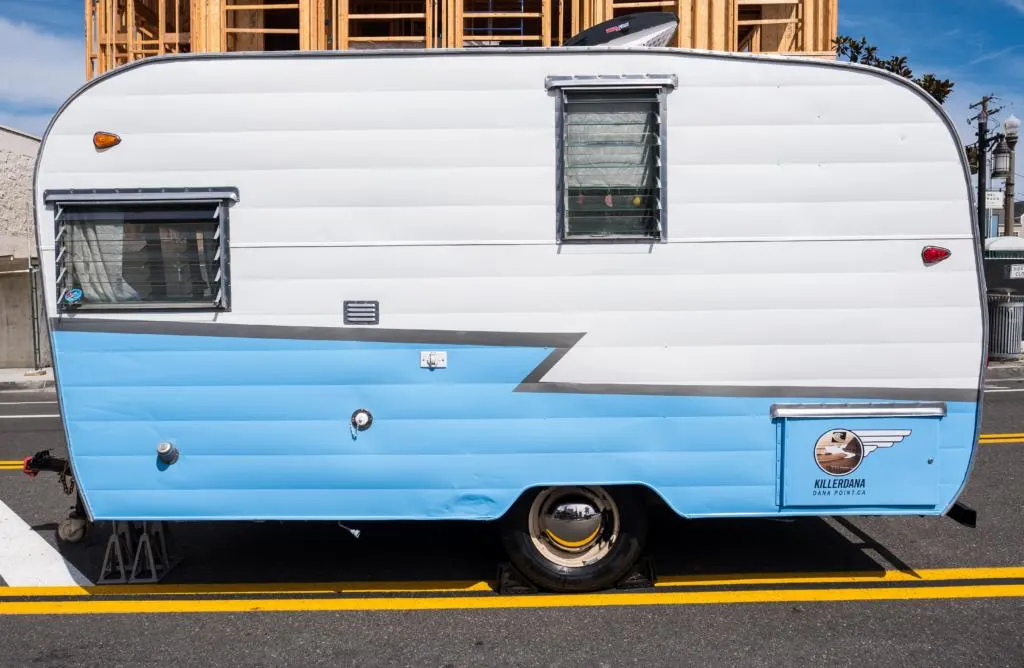
You might think, hey can I just buy some land and live in my campervan or RV? And sadly, it’s not that easy, there are property zoning laws and regulations you must follow in order to “legally live in a camper van”.
You can often only live in a camper van or RV for a short duration of time while you build out a physical property. There are often rules about water, septic, and electrical installations.
Property zoning laws differ by state and county, and unfortunately it often requires hours of unglamorous searching through government websites for information.
But if you have a place picked out, then its worth digging into the local rules and regulations.
Check into the area you either live or plan to live in your camper van for an extended period of time to see how long you can legally live in a camper van. There are some areas that allow you to live in your camper van or RV for up to 6 months. And some cities or towns have a “grey area” when it comes to zoning laws.
For example, Houston, TX doesn’t have zoning laws, but that’s not to say you can legally live in a campervan or RV indefinitely. There could be use laws, HOA’s, or covenants that take the place of restricting land use. Read this article by, Kinder Institute for more information about the no zoning regulations in Houston.
But, there are a few states and counties where you can legally live in a camper van for free. Check out Off Grid Grandpa’s post about Top 25 Places To Live Off The Grid For Free. Just note, you are most likely going to have to live way off-grid away from civilization.
Overall, in most cities and towns, there are zoning laws preventing you from legally living in a campervan or RV for a long duration of time. The zoning law usually only provides a set amount of time to give you enough time to establish a more permanent residence.
This post gives more detail about living on an RV on your own land.
ADU (Accessory Dwelling Unit):
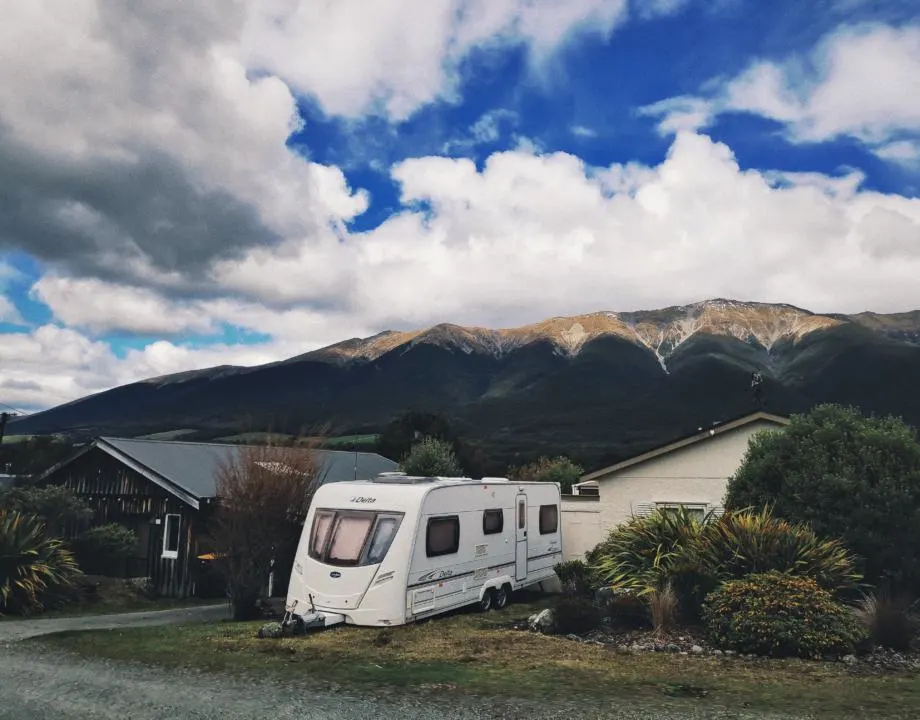
In some regions you are allowed to have an accessory dwelling unit on your permanent residence. These are often guest homes or separately living areas on your permanent residence. This can allow you to have an RV as an additional living space on your property.
But do note, some states do not allow a camper van or RV to be an ADU. So check the area you plan to legally live in a camper van or RV to see if you can legally use a camper van or RV as an ADU.
Establishing Residency/ Registering your car:
It is the law to register your vehicle if you will be driving it anywhere on a physical road throughout the year. You will still need to register your vehicle in the state you “reside” in.
For example, Jake and I started vanlife from Colorado, we don’t have a physical residence, but we do have a virtual mailbox that helps us establish our residency. But other than that we are completely nomadic and don’t have a physical home.
If you are interested in getting a virtual mailbox, then consider using Anytime Mailbox. This is the company we use and have had a great experience. Someone will snap a pic of the mail and you can choose whether you want it opened & scanned, forwarded to you, recycled, shredded, etc.
If you don’t want to get a virtual mailbox, you could possibly use a family member or friend’s house. But do note, there might legally be rules about them claiming you as residents.
Registering An RV As A Residence
It is sometimes possible to register your RV as a residence even if the RV sometimes is mobile. The IRS considers an RV a residence if it meets the needs of sleeping, cooking, and toilet. This can allow you to establish residency for tax purposes. You also may be able to register for an address.
BLM (Bureau Of Land Management) & USFS (US Forest Service) Dispersed Camping:
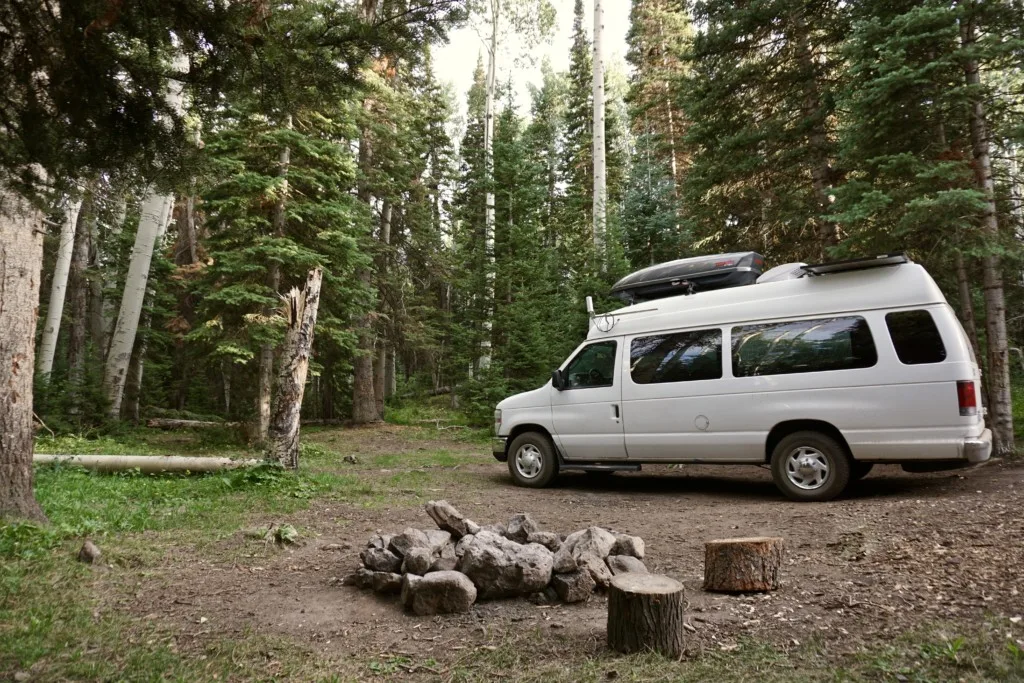
BLM land and USFS land are essentially federally owned public land that can be used for free, but only for a short period of time. You can only camp in designated campsites, you can’t just park anywhere or make your own spot.
On most BLM land you can only stay 14 days within a 28 consecutive day period. Then the camper must move outside a 25-mile radius of the previous location. You can not use these areas as a permanent residence. Also, BLM and National Forest land is much more abundant in the West.
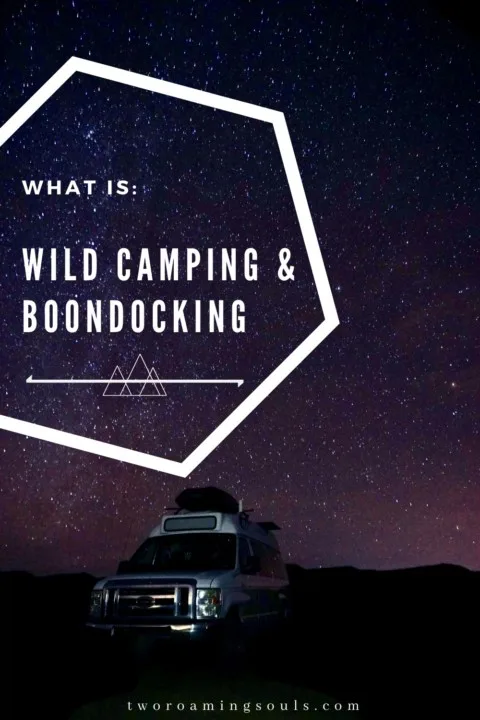
For more information on dispersed camping, check out our post: Beginner’s Guide To Wild Camping and Boondocking
Campgrounds:
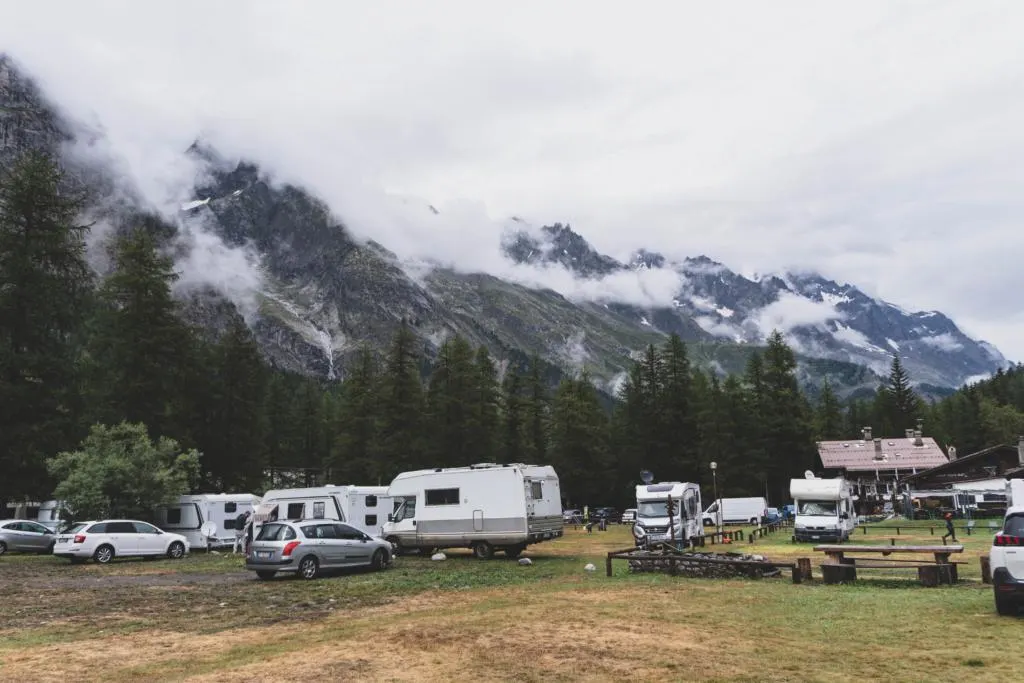
Campgrounds are one of the most reliable places you can legally sleep in your camper van or RV. But many campgrounds don’t exactly come cheap. Many campgrounds have a maximum stay limit but there are also some that offer long-term stays.
Some campgrounds charge a monthly fee where you can stay for an extended period of time (which can sometimes be as low as $300/month). This is your best bet if you plan to stay in one location longer than 14 days.
Office Drift has a great resource for finding long-term campgrounds or RV lots. Their guide breaks it down by state where you can find monthly rates and their amenities for campgrounds or RV lots.
RV Community:
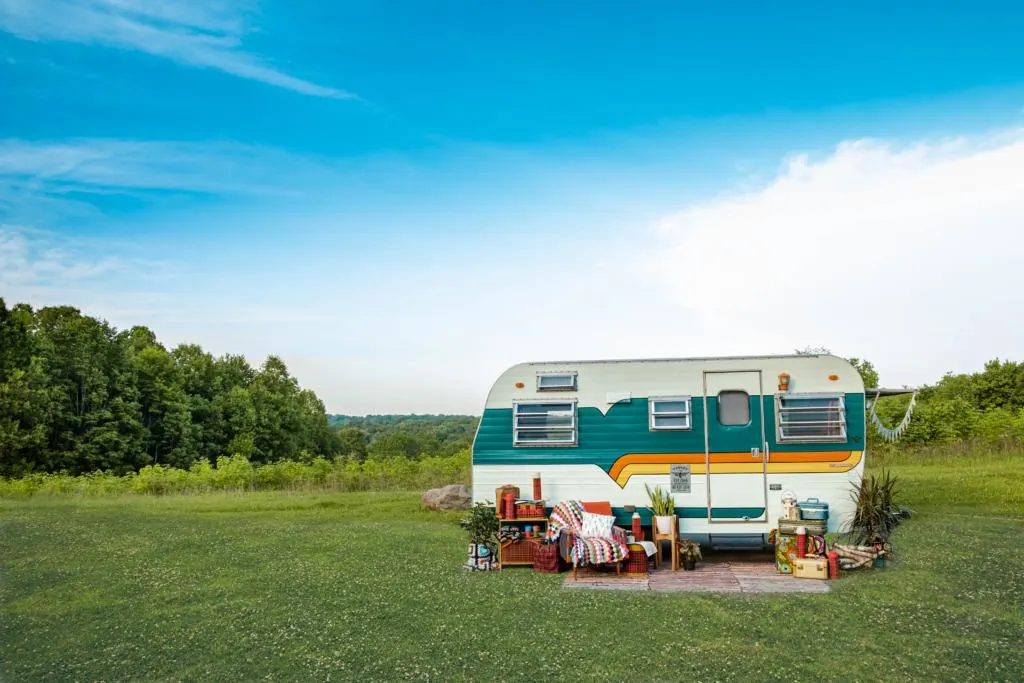
There is an option to purchase land in an RV community where you can legally live in a camper van or RV. There are still rules and regulations you must follow such as the maximum length and width of the camper van or RV. And you must hook up properly to water and septic which usually comes with an annual fee. Plus there is sometimes a maintenance fee for nicer RV communities. But RV communities tend to have nicer amenities than a campground.
An added bonus to living in an RV community is you usually get amenities included such as laundry, showers, pool/hot tub, etc.
Check into the Website RV Park Store for RV lots for sale.
Get A Job That Allows You Legally Live In A Camper Van Or RV On Property:
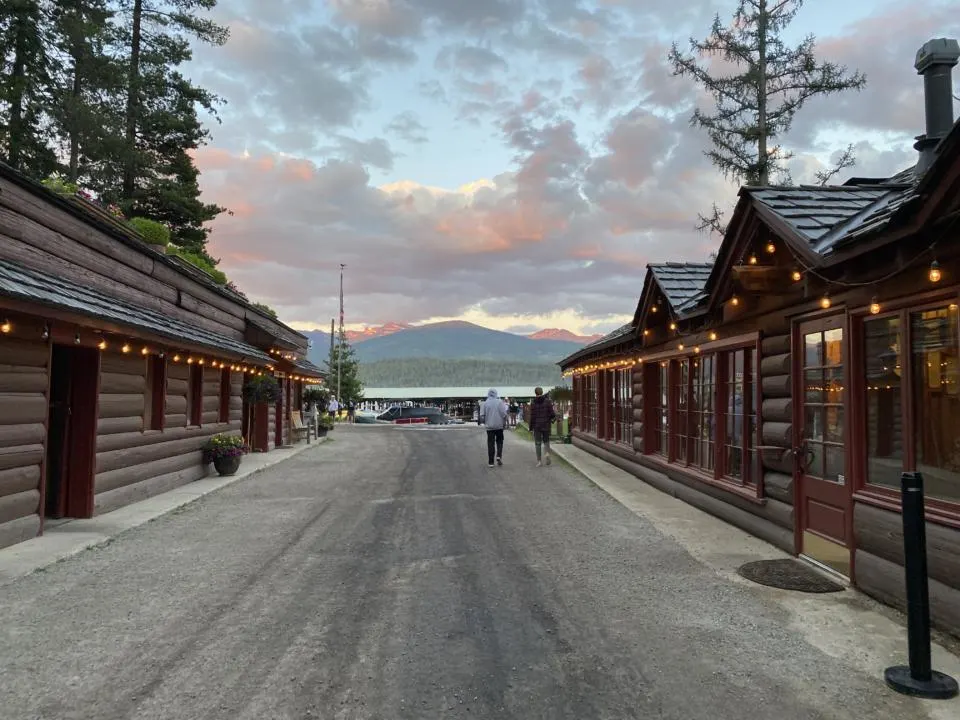
There are some jobs you can get lucky with that allow you to stay on their property. While it’s not always free, it does allow you to legally live in a camper van or RV. Jake and I worked in Northern Idaho at a resort where we picked up seasonal jobs. There were many people living on the property for a fraction of the cost of an apartment in their vehicles, campervan or RV.
If you are looking for a fun seasonal job that might allow you to legally live in a camper van or RV, check out coolworks.com.
Or better yet, one of the best ways to legally live in a camper van or RV is to work at a campground. Many campgrounds are looking for hosts to watch over the campground, maintain, clean and help guests around the campground.
Where Can You Legally Live In A Camper Van For A Day or Short Period Of Time?
While these spots don’t necessarily allow you to stay for an extended period of time, they allow you to stay legally for a night or two. But our best suggestion is to adhere to the rules, so that you don’t overstay your welcome.
Walmart, Cabela’s, Casino’s, Cracker Barrel:
There are a few different places where overnight parking is often allowed such as Walmart, Cabela’s, Casinos, and Cracker Barrels. I think the main objective of allowing people to stay overnight in their campervan or RV for free is because the customers will inevitably spend money at their facility.
It is still a good idea to call ahead to make sure the facility allows overnight parking. They often have a spot in the parking lot where they prefer you to park. Also, make sure there are no signs for no overnight parking because some cities and towns municipal law doesn’t allow overnight parking, so some of these locations listed above legally can’t allow you to stay on their property.
Rest Stops:
Rest stops can be a good short term solution, but not all rest stops allow overnight parking. And some only allow for a certain amount of hours. So you will need to do a little extra research about the states you are traveling in. Here is a general guide by state for where you can legally live in a camper van for a night.
Rest Area Rules By State:
Alabama: No overnight parking
Alaska: Overnight parking allowed (24 hour limit)
Arizona: Overnight parking allowed (no limit specified)
Arkansas: Overnight parking allowed (no limit specified)
California: Overnight parking allowed (8 hour limit)
Colorado: No overnight parking
Connecticut: No overnight parking
Delaware: No overnight parking
Florida: No overnight parking
Georgia: No overnight parking
Hawaii: No overnight parking
Idaho: Overnight parking allowed (10 hour limit)
Illinois: No overnight parking
Indiana: Overnight parking allowed
Iowa: Overnight parking allowed (10 hour limit)
Kansas: Overnight parking allowed (24 hour limit)
Kentucky: No overnight parking
Louisiana: Overnight parking allowed (no limit specified)
Maine: Overnight parking allowed (24-hour limit Nov 1st-April 20th)
Maryland: No overnight parking allowed
Massachusetts: Overnight parking allowed (unless signs stating otherwise)
Michigan: Overnight parking allowed (24-hour limit)
Minnesota: Overnight parking allowed (4-hour limit)
Mississippi: Overnight parking allowed (8-hour limit)
Missouri: Overnight parking allowed (24-hour limit)
Montana: Overnight parking allowed
Nebraska: Overnight parking allowed (10 hour limit)
Nevada: Overnight parking allowed (18 hour limit)
New Hampshire: Overnight parking allowed
New Jersey: No overnight parking allowed
New Mexico: Overnight parking allowed (24-hour limit)
New York: No overnight parking allowed
North Carolina: No overnight parking allowed
North Dakota: Overnight parking allowed (no limit)
Ohio: Overnight parking allowed (no limit specified)
Oklahoma: Overnight parking allowed (no limit specified)
Oregon: Overnight parking allowed (12-hour limit)
Pennsylvania: No overnight parking allowed
Rhode Island: No overnight parking allowed (unless for safety reasons)
South Carolina: No overnight parking allowed
South Dakota: No overnight parking allowed
Tennessee: No overnight parking allowed
Texas: Overnight parking allowed (24 hour limit)
Utah: No overnight parking allowed
Vermont: No overnight parking allowed
Virginia: No overnight parking
Washington: Overnight parking allowed (24 hour limit)
West Virginia: Overnight parking allowed (no limit specified)
Wisconsin: Overnight parking allowed (24-hour limit)
Wyoming: No overnight parking allowed
Do note these rules are “general rules” and don’t protect you from a possible knock on the door for a police officer. Only stay overnight if you feel comfortable. Some areas don’t allow overnight parking but do allow a short nap to stay alert on the road. Therefore, safety is #1, don’t drive if you are too tired.
Tips For Legally Living In A Campervan:
Always Read Signs:
It’s important to pay attention to signs when living full time on the road. There are a lot of cities/towns that don’t allow sleeping inside a vehicle. While it’s often easy to get away with it for a night or two, it’s better to just find a different area to avoid a hefty ticket. Also always look at street signs, because street cleaning is usually on a different day of the week and month on each street and it can be easy to get a ticket if you are parked in the wrong spot at the wrong time.
And just because you find a spot on let’s say iOverlander where someone says it is cool to stay, doesn’t always mean it’s legal.
Rule Of Thumb:
You always want to feel safe when you are finding a place to rest for the night. No one wants to be ½ awake all night because they have a bad feeling about an area. So if you don’t feel safe, find a new place to rest for the night. It’ll be worth the extra nights rest!
Leave No Trace:
One of the most mindful things to be aware of is Leave No Trace. Jake and I often call it “erase a trace” when out camping because we want to leave the campsite even better than we found it. If we find a campsite w/ trash, we try our best to pick up as much as we possibly can.
Many of these options are available as a privilege, and a valuable one that we shouldn’t abuse. Businesses are likely to stop allowing free overnight parking if they find trash or human waste in their parking lots.
And BLM land often operates with little resources for maintenance. The way these places will remain available is by picking up after yourself. If you do see trash at of these places, please pick it up. Be respectful of the place and leave it better than when you arrived!
Also, for going to the bathroom on BLM land, please follow these rules:
- Respect “Pack It In, Pack It Out” rules
- Go 200 feet from any water source (ponds, streams, creeks, lakes)
- Dig a hole at least 6 inches for solid human waste
- Pack out toilet paper if it isn’t buried
Takeaway | Can You Legally Live In A Camper Van Or RV:
While it might seem nice and easy to move into a camper van or RV for an extended period of time there are some rules and regulations you must follow. You can’t just drive over to your relatives house and live in their driveway indefinitely (unless the zoning laws allow). So legally living in a camper van or RV does come with some limitations.
Jake and I have lived in our camper van full-time for about 2 years now. We have legally lived in it because we have established residency and never break the laws by staying in one place longer than we legally can. But we also have the luxury of moving all around because our jobs are either remote or seasonal where we can park for free or a monthly fee to live on the premises.
I hope this post helps you better understand your options for where you can legally live in a camper van or RV.
Help Us Share Can You Legally Live In A Camper Van Or RV On Pinterest:
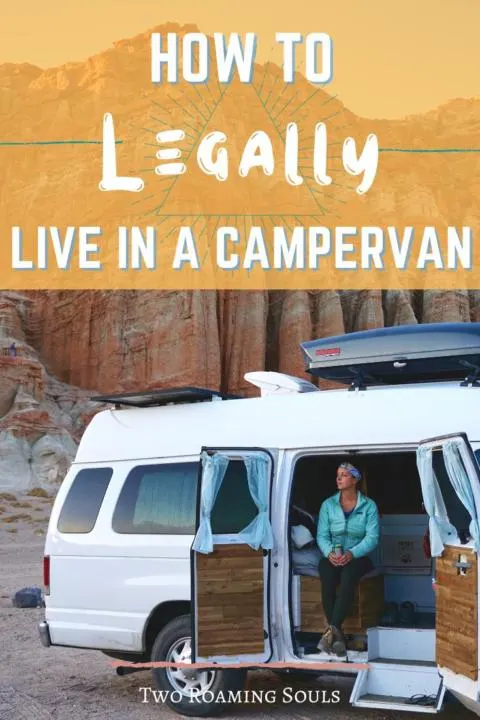
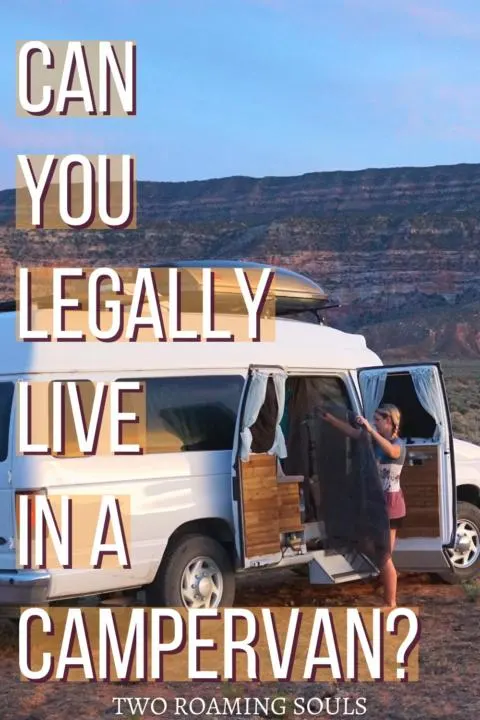

Can I Live In A Campervan On The Street? | Justdownsize
Thursday 7th of October 2021
[…] Can You Legally Live In A Camper Van or RV – tworoamingsouls […]